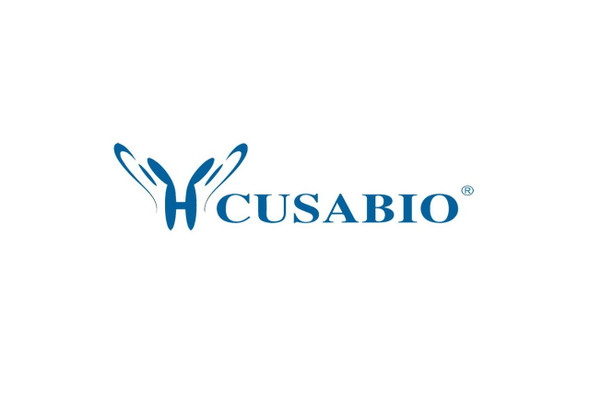Cusabio Active Proteins
Recombinant Human B-lymphocyte antigen CD19 (CD19), partial (Active) | CSB-AP005061HU
- SKU:
- CSB-AP005061HU
- Availability:
- 5 to 10 Working Days
Description
Recombinant Human B-lymphocyte antigen CD19 (CD19) ,partial (Active) | CSB-AP005061HU | Cusabio
Protein Description: Extracellular Domain
Alternative Name (s) : B-Lymphocyte Antigen CD19; B-Lymphocyte Surface Antigen B4; Differentiation Antigen CD19; T-Cell Surface Antigen Leu-12; CD19
Gene Names: CD19
Research Areas: Immunology
Species: Homo sapiens (Human)
Source: Mammalian cell
Tag Info: C-terminal Fc-tagged
Expression Region: 20-291aa
Sequence Info: PEEPLVVKVEEGDNAVLQCLKGTSDGPTQQLTWSRESPLKPFLKLSLGLPGLGIHMRPLAIWLFIFNVSQQMGGFYLCQPGPPSEKAWQPGWTVNVEGSGELFRWNVSDLGGLGCGLKNRSSEGPSSPSGKLMSPKLYVWAKDRPEIWEGEPPCLPPRDSLNQSLSQDLTMAPGSTLWLSCGVPPDSVSRGPLSWTHVHPKGPKSLLSLELKDDRPARDMWVMETGLLLPRATAQDAGKYYCHRGNLTMSFHLEITARPVLWHWLLRTGGWK
Biological Activity: The ED50 as determined by its ability to binding CD19 used funtional ELISA is less than 20 ug/ml
MW: 57.3 kDa
Purity: Greater than 80% as determined by SDS-PAGE.
Endotoxin: Less than 1.0 EU/µg as determined by LAL method.
Relevance: CD19 is a single-pass type I membrane protein containing 2 Ig-like C2-type (immunoglobulin-like) domains. CD19 is expressed on follicular dendritic cells and B cells. In fact, it is present on B cells from earliest recognizable B-lineage cells during development to B-cell blasts but is lost on maturation to plasma cells. CD19 primarily acts as a B cell co-receptor in conjunction with CD21 and CD81. Upon activation, the cytoplasmic tail of CD19 becomes phosphorylated, which leads to binding by Src-family kinases and recruitment of PI-3 kinase. CD19 Assembles with the antigen receptor of B lymphocytes in order to decrease the threshold for antigen receptor-dependent stimulation. Defects in CD19 are the cause of immunodeficiency common variable type 3 (CVID3) which is a primary immunodeficiency characterized by antibody deficiency, hypogammaglobulinemia, recurrent bacterial infections and an inability to mount an antibody response to antigen.
PubMed ID:
Notes: Repeated freezing and thawing is not recommended. Store working aliquots at 4℃ for up to one week.
Function: Assembles with the antigen receptor of B-lymphocytes in order to decrease the threshold for antigen receptor-dependent stimulation.
Involvement in disease: Immunodeficiency, common variable, 3 (CVID3)
Subcellular Location: Membrane, Single-pass type I membrane protein
Protein Families:
Tissue Specificity:
Paythway: PI3K-Aktsignalingpathway
Form: Lyophilized powder
Buffer: Lyophilized from a 0.2 μm filtered 20 mM PB, 150mM NaCl, pH 7.4
Reconstitution: We recommend that this vial be briefly centrifuged prior to opening to bring the contents to the bottom. Please reconstitute protein in deionized sterile water to a concentration of 0.1-1.0 mg/mL.We recommend to add 5-50% of glycerol (final concentration) and aliquot for long-term storage at -20℃/-80℃. Our default final concentration of glycerol is 50%. Customers could use it as reference.
Uniprot ID: P15391
Uniprot Entry Name:
HGNC Database Link: HGNC
UniGene Database Link: UniGene
KEGG Database Link: KEGG
STRING Database Link: STRING
OMIM Database Link: OMIM









